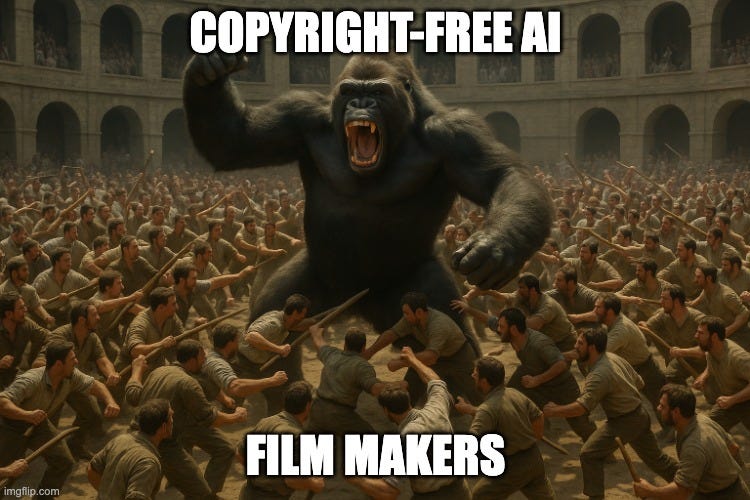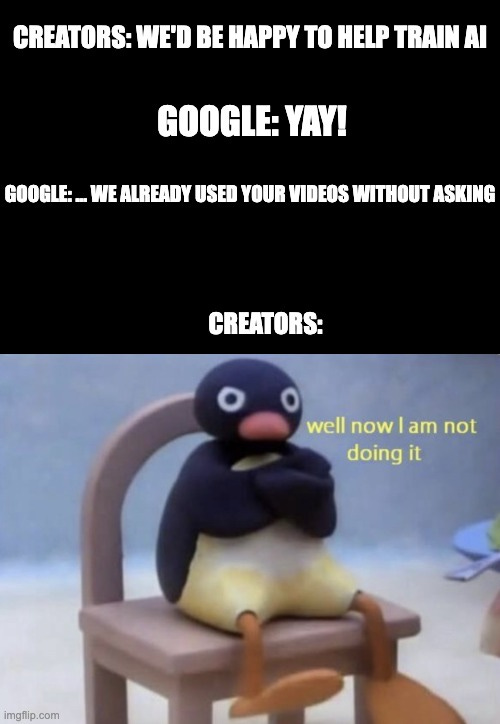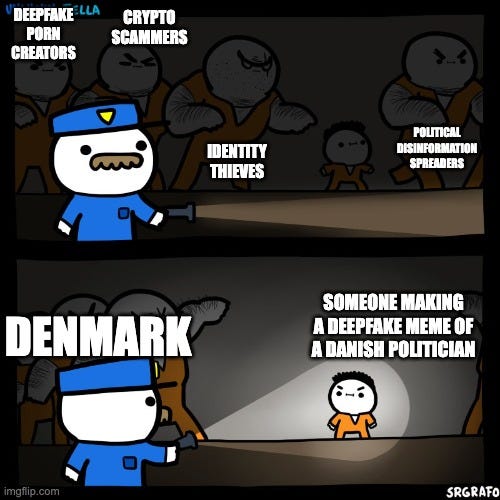YouTube videos are training your replacement
Denmark copyrighted faces, and other dystopian Tuesday updates
In this week’s stories:
Google casually admitted they've been using your YouTube videos to train AI without asking (but it's technically legal, so that's fine?). Meanwhile, Denmark made face-stealing illegal, solving a problem that shouldn't have existed in the first place.
Also, AI is now flooding social media with so much garbage that half of YouTube's top channels are just AI content used to train other AI content. On the bright side, a horror movie about influencers getting murdered for clout somehow counts as optimistic fiction.
Catch up in 5 minutes
It’s the Creators delivers quick and insightful updates on creators, their businesses, and the platforms they use.
Horror movie about influencers dying somehow less dystopian than reality
Skillhouse is a new horror film that follows ten content creators who face kidnapping and must endure deadly social media challenges, where "clout is life" and failure to gain enough likes means game over. Josh Stolberg from Saw directed the film as a satirical take on influencer culture, blending gruesome horror with commentary on the pursuit of online fame. Drama has surrounded the production, including a high-profile lawsuit from 50 Cent over the use of his image and name, though a court allowed the film's release to proceed. Early reviews are divided with some calling it a witty satire and others saying it’s one of the worst movies ever made.
Moonvalley promises copyright-free AI that will still steal your job
Moonvalley publicly released its Marey video generation model designed specifically for professional filmmakers. The model stands out because developers trained it exclusively on openly licensed data, helping it avoid potential copyright issues that plague other AI video tools. Marey offers new control for filmmakers through features like "hybrid filmmaking" that allows creators to upload scenes with real actors and generate similar footage with altered objects, backgrounds, or costumes. The subscription-based service starts at $14.99/month for 100 credits, which also means AI continues to drive down the cost of film production.
Google politely stole your videos to train AI
Google has confirmed it uses a portion of YouTube's huge video library to train its AI models, including Veo 3, but most creators remain unaware that the company uses their content for this purpose. While YouTube claims to only use a specific subset of videos and states it has agreements with some creators and media companies, experts and interviewed creators say YouTube didn’t inform them or obtain their consent for AI training use. YouTube's terms of service grant the platform a broad license to use uploaded content, which technically allows Google to use videos for AI training, but this practice has raised ethical and transparency concerns among creators and industry observers. The scale of AI training reaches massive scale, with even a small percentage of YouTube's 20 billion videos amounting to billions of minutes of data, far exceeding the training sets that other AI models use. The controversy has sparked debates about intellectual property rights, the need for creator consent, and the lack of an opt-out mechanism for creators who do not want companies to use their work to build AI tools that could eventually compete with them.
Denmark makes stealing faces illegal, shocking nobody
Denmark will become the first European country to grant individuals copyright over their own face, voice, and physical likeness, aiming to combat the rise of AI-generated deepfakes and digital impersonation. The proposed legislation, which most political parties back, would allow people to claim legal ownership of their personal appearance and voice, giving them the right to demand removal and seek compensation if someone uses their likeness without consent. The law includes exceptions for parody and satire to protect freedom of expression but primarily targets harmful uses such as non-consensual deepfake pornography, scams, and fake political content.
Replacing humans completely, AI floods social media with garbage
The mass creation of highly realistic, AI-generated clips in minutes is fundamentally changing social media feeds. Tools like Veo 3 allow creators to produce lifelike videos with minimal effort, resulting in a flood of low-quality, automated content that already dominates TikTok, YouTube Shorts, and Instagram Reels. Nearly half of YouTube's top channels now feature AI-generated material, and virtual AI personalities attract millions of followers, indicating a shift toward automated entertainment. The platforms themselves embrace AI not just for content creation but also for automating ads, leading to a more addictive and less enriching user experience. The overwhelming volume of low-value content and the growing challenge of grabbing users' attention in a sea of infinite scroll makes you wonder if these platforms will regret embracing AI for content and ad creation.
Thanks for reading!
If you need a simple way to organize and search your media library, check out Cosmos, a tool made for creators who want to spend less time on admin work and more time creating.






